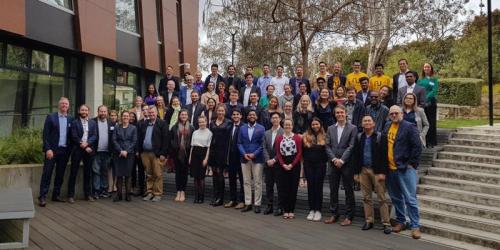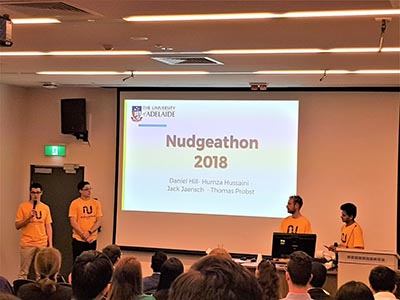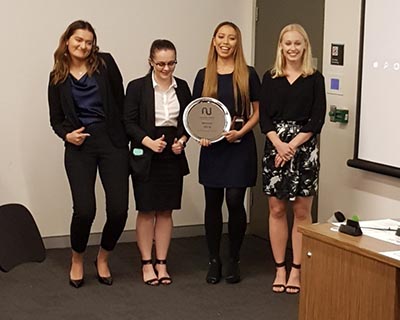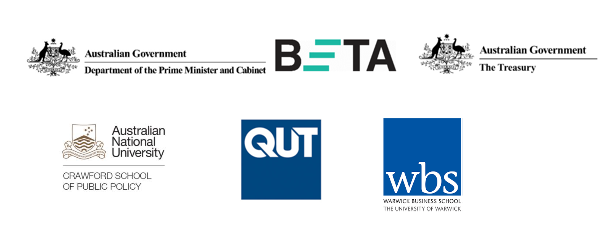
THE BRIEF
For Australia’s second Nudgeathon, 13 student teams and one APS graduates team gathered in Canberra on a cold September Sunday with a behavioural economics problem in front of them. The challenge: how can we engage Australians as thoughtful participants in the data economy?
The teams were asked to focus on the behavioural challenges associated with ‘Open Banking’, and find the best ‘nudges’ to help citizens:
- choose and/or switch to better products and services (by unlocking the potential of third party providers and comparison services), and/or
- make informed and thoughtful choices about sharing their data (including understanding privacy policies).

Open Banking and Behavioural Change
Open Banking is part of the forthcoming Consumer Data Right (CDR). The CDR will give Australians greater control over their data, and who they share it with. It will initially be implemented in the banking (‘Open Banking’), energy, and telecommunications sectors, then rolled out to other sectors economy-wide.
Open Banking has the potential to improve the value consumers get from banking products and services. For example banking applications will be able to compare offers and help customers find better deals, by analysing their credit card spending and repayment behaviours. But to take full advantage of this, customers will need to “shop around”. They will also need to understand how their data will be shared, in order to provide informed consent.
IDEAS and WINNERS

The teams all pitched their solutions in front of the group and were full of energy and ideas. Some students used gamification and combined social marketing with behavioural insights. Others leveraged familiarity by using a known classification system for registered providers in the open banking system. Quizzes and videos were suggested as ways to engage consumers in understanding privacy conditions. Several teams sought to facilitate the decision process by breaking it down into several steps. Proposals also focused on reducing information overload by limiting the number of credit card options presented on comparison websites or apps, with one team proposing a mechanism to reduce it down to “One Choice”.
All teams delivered fantastic presentations! They certainly gave the judges a difficult job. The winner was QUT Social Marketing team who used gamification in their pitch, with QUT Economics team and UQ team getting 2nd and 3rd place. No Queensland biases involved we promise!
VERDICT: ANOTHER SUCCESSFUL AUSTRALIAN NUDGEATHON!

The Behavioural Economics Team of the Australian Government (BETA) in the Department of Prime Minister and Cabinet (PM&C), and the Crawford School of Public Policy at the Australian National University (ANU), collaborated closely with the Queensland Behavioural Economics Group (QuBE) of Queensland University of Technology (QUT) to organise the event. The competition judge was Dr Umar Taj from Warwick Business School, at London School of Economics and Political Science, where the Nudgeathon concept originated. BETA was proud to be the major sponsor.
Feedback on the event was overwhelmingly positive. The students said they enjoyed learning about how behavioural insights can support public policy. The judging panel and observers were deeply impressed with the students’ knowledge of behavioural biases and heuristics, the creativity of their ideas, and the quality of their presentations.
Well done to all! Another great Australian Nudgeathon with practical insights for public policy!

